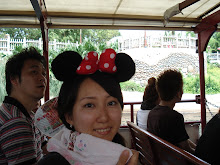I found autonomy-togetherness dialectic interesting in this chapter. I sometimes found myself in trouble because I wanted too much closeness with my friends, roommates, and a romantic partner. I am always happy to disclosure myself to people who are close to me, and I also want to know them as much as I can. I believe, by disclosing myself, or sharing experiences, feelings, and concerns, I can get closer to them and get along with them better. I like a relationship and a bonding I create with others.
However, I noticed that some people don’t like to disclose themselves to others as much as I do. One of my former roommates became a good friend of mine. I really liked her, and enjoyed hanging out with her. However, I tried to talk to her not as much as I want because I sometimes felt that she wants to keep her privacy and time. I understood her, but I was little sad because I always love to spend time with other people.
I think knowing the autonomy-togetherness dialectic is extremely important for interpersonal communication. If we want to keep a good relationship with our friends or partners, we need to sense and respect the way they prefer to relate with others.
Final Post
17 年前

3 件のコメント:
Hi Chocoyuko! It's interesting that you've experienced this. I think most of us have at some point or another. My question to you is this: Have you ever experienced someone who discloses too much information to you? If so, how did you deal with that? And, how did it make you feel?
Hello theboggingprof,
I actually never experienced someone is disclosing too much information to me. My friends talk about private concerns, but since they are my friends, I always like to listen for them.
Maybe I unconciously avoid being a friend of people who are too friendly or too open to others.
Chocoyuko...I totally agree with you about self-disclosure to people you are close to and I have also felt the rift from those who do not share my same sentiments. I have actually gotten in trouble for this a bit as I am not affraid to speak, or in the following case show, my mind. I am heavily tattooed with various symbols that tell my life story. The visable tattoos on my neck and arms tell people 4 things about myself that most in this country hold as secret or as privaledged: my birth place, my birth sign, my religion, and my political affiliation. Back in my former home of Miami, FL I was often challenged due to these images I self disclosed to the public because to many in Miami a Buddhist Libra Socialist from Boston is nothing more than a godless communist gringo...I guess my tattoos covered the fact that I am in fact half Cuban. I also believe that (to answer the Prof's question above) the amount disclosed, and whether or not too much has been disclosed, is a matter which concerns the listener, not the speaker. In a normal situation of self-disclosure, where statements are not being coerced or made under the influence of stress or chemicles, one could assume the speaker is comfortable with what is said. It is then the listener who places their judgement on whether or not what was spoken about made them feel uncomfortable or not...which would then guage if too much information was disclosed.
コメントを投稿